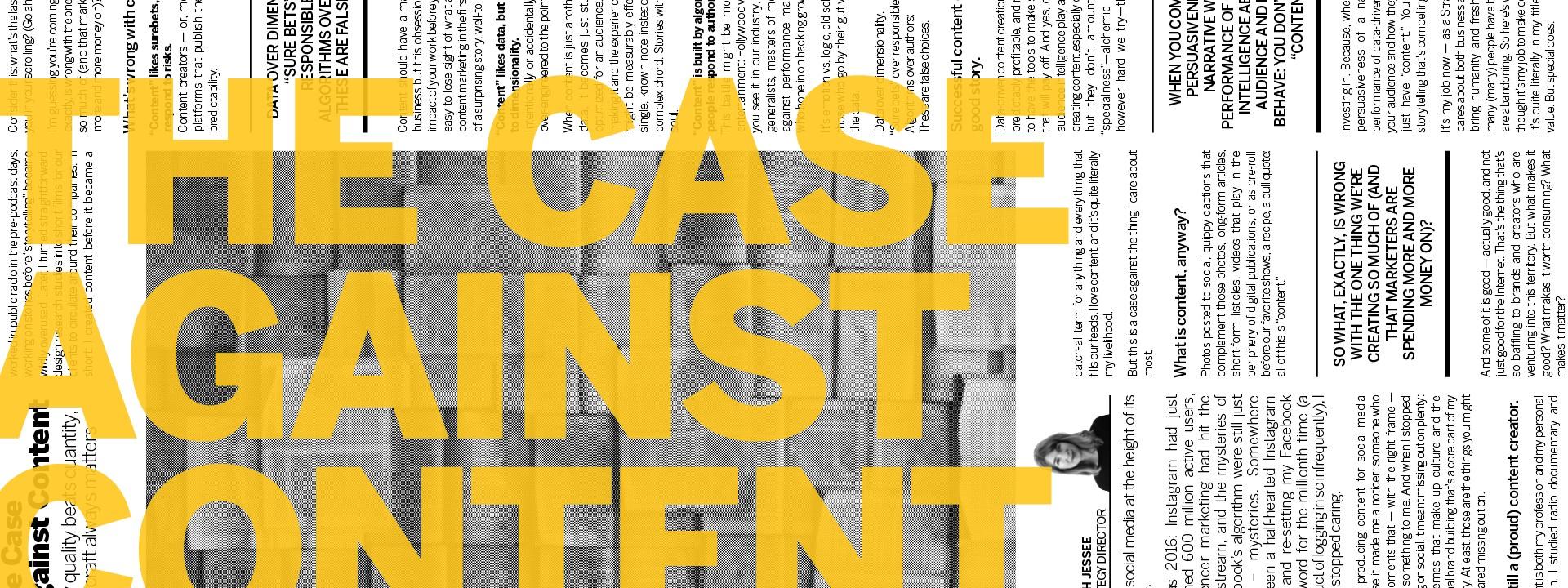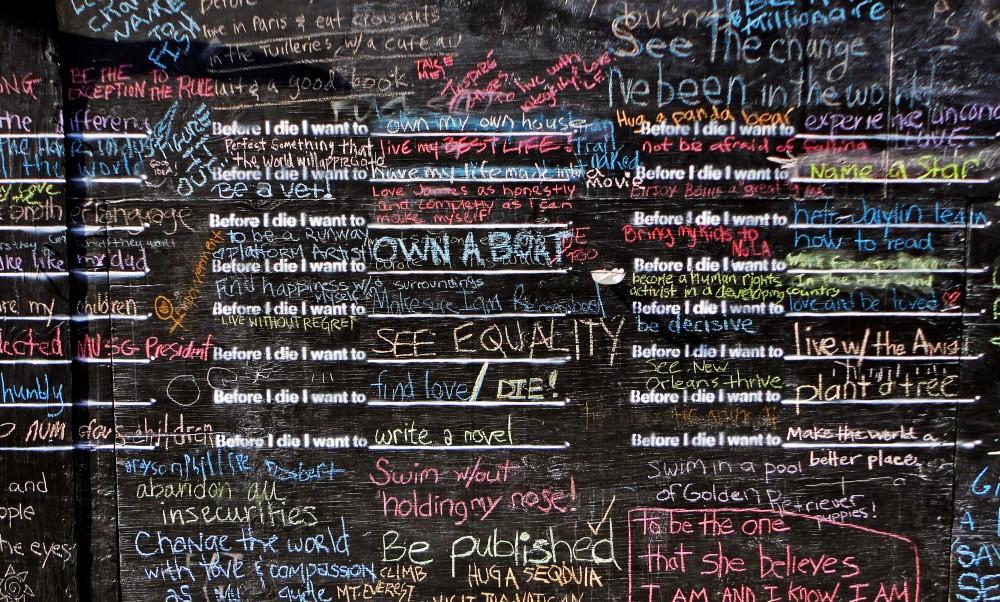The Case Against Content

It’s an unavoidable truth: we live in an age of continuous content.
This catch-all term has come to name everything we consume, from TV shows to memes, gifs to tweets, long form editorial to TED Talks, and everything else in between. Content is propaganda, truth, lies, prophecy, escape. All that we produce, automatically falls into this great big pool of content. Some of it’s good, some of it’s not. But hasn’t this always been the case with art? With story? With the various products of a society? The metric we use is perhaps not so simple—here I give you good content, there they give you bad. Perhaps it’s more about what resonates, what remains. It’s about what’s necessary, what has the power to redirect a conversation, or start an entirely new one. To make a person feel something deeply, to give them pause—is this what “good” content should do?

Content is propaganda, truth, lies, prophecy, escape.
For our first issue of JMS Editorial, our team focused on different aspects of the content economy, and questioned the ways it shapes our days and shapes our decisions. Because ultimately, content is something we can either be passive about, sifting through it indifferently and creating iterations of the same thing, or we can be active in this space, pushing boundaries and finding new ways of thinking that, in turn, inspire a chain reaction of more transgressive ways of thinking, too.
Read the issue here.
